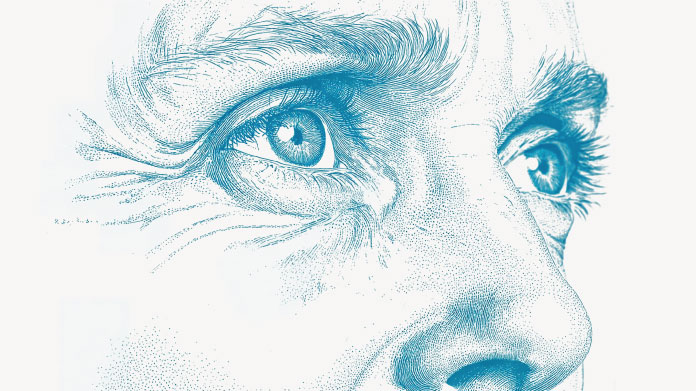What exactly is calorie restriction?
Calorie restriction consists of reducing your food intake, compensating for any potential deficiencies by taking supplements. Aside from its slimming effects, calorie restriction is now being studied primarily for its ability to prolong life expectancy.

Calorie restriction: principles and origins
Following is a brief overview of calorie restriction: the promising avenues of research, how you can put it into practice and the substances that replicate its effects.
Let’s first restate that this intervention consists of reducing one’s daily food intake - by at least 15% and necessarily accompanying it with appropriate supplementation to avoid any risk of deficiencies.
The effects of calorie restriction were observed as far back as the sixteenth century. It was the aristocrat Luigi Cornaro who first wrote about it in his book ‘Discourses on the Sober Life’. Finding himself in failing health due to his decadent lifestyle, he decided to adopt an almost ascetic diet. Cornaro attributes this move with significantly prolonging his life - he actually survived until the age of 98 (1). The scientific community was slow to take an interest in the processes involved, but has now ended up concurring with the aristocrat’s view.
The links between reduced food intake and longevity
Studies on animals, particularly rodents and primates, have shown that calorie restriction activates the genessirtuins.
These have multiple effects in the body:
- they reduce energy expenditure and the generation of associated molecules which become toxic when they accumulate;
- they decrease the production of free radicals and oxidative stress, a key factor in premature aging;
- they promote activity of telomerase, an enzyme that helps preserve DNA integrity for longer.
Sirtuins thus act at several levels to curb premature aging, slowing down metabolism and protecting functions essential for life. (2)
In addition, calorie restriction may make the body more sensitive to the pancreatic hormone, reducing diabetes, and may encourage the body to burn stored fat. It therefore seems to play a role in protecting both the cardiovascular and nervous systems. And finally, scientists have shown calorie restriction and the mechanisms involved to be highly promising avenues of research in the fight against cancer development. (3)
How to practise intermittent fasting
In terms of human instances, we can look at the example of the inhabitants of Okinawa, in Japan. These people are proponents of a restricted diet and their exceptionally long life expectancy is particularly encouraging. Calorie restriction can also take the form of intermittent fasting. This is a gentler way of reducing food intake and is also proven to produce weight loss.
To practice intermittent fasting, you need to abstain from eating for 16 hours. The best time for many people is the interval between (an early) dinner and lunch the next day, skipping breakfast. It’s also possible to go without dinner or lunch, depending on your personal eating patterns and preferences. You can also try other ways of fasting, such as the 5:2 diet. This involves reducing your food intake by 25% for two days each week, and eating normally on the other five days .
Studies are starting to show that intermittent fasting may have comparable effects to those of calorie restriction, especially in terms of sirtuins (4). When practised correctly, these methods are safe and make it possible to take the first steps towards calorie restriction.
Anti-aging tip: defy the aging process by mimicking calorie restriction
Calorie restriction can be seriously restrictive, both on a day-to-day basis and over the long term. The good news is that scientific advances have led to the identification of certain molecules that mimic its effects! (5) They include:
- rapamycin, isolated from mushrooms, the benefits of which have been reproduced in laboratory-produced ‘rapalogs’ (you can find them in Natural Rapalogs) ;
- resveratrol, a polyphenol recognized for its anti-aging properties (also present in the previous supplement) ;
- pterostilbene, with similar effects to resveratrol but with the added advantage of superior absorption by the body (ideally opt for the product Pterostilbene).
Calorie restriction and the molecules that aim to reproduce its effects represent promising options for extending longevity to the max!
References
- Walker, William B. Luigi Cornaro, a Renaissance Writer on Personal Hygiene. Bulletin of the History of Medicine; Baltimore, Md. Vol. 28, (Jan 1, 1954): 525.
- Alexandre Balaphas, Romain Betend, Marie-Charlotte Brueggen, Aude Chenu, Pierre Cosson, Priscilla Soulié. Manger moins pour vivre plus : la restriction calorique livre ses premiers secrets. Rev Med Suisse 2008; volume 4. 999-1000
- Kritchevsky D. Caloric restriction and cancer. J Nutr Sci Vitaminol (Tokyo). 2001 Feb;47(1):13-9. Review.
- Bronwen Martin, Mark P. Mattson, Stuart Maudsley, Caloric restriction and intermittent fasting: Two potential diets for successful brain aging, Ageing Research Reviews, Volume 5, Issue 3, 2006, Pages 332-353.
- Julia Marchal. Impact d’une restriction calorique modérée ou d’un mimétique potentiel, le resvératrol, sur les marqueurs du vieillissement et sur la longévité chez un primate non-humain. Médecine humaine et pathologie. Université René Descartes - Paris V, 2012. Français.
Keywords
7 Days
A Product worth waiting for when not…
A Product worth waiting for when not available and then arriving as a surprise!
DOMINIC
8 Days
On time shipping
On time shipping
GEORGE Verne
10 Days
Ordering was easy and the product was…
Ordering was easy and the product was delivered with no problems. Appreciated that I was notified when it would arrive. Thanks!
MascarC
16 Days
Great customer service - responsive …
I ordered from them and my item was unavailable for sometime. I was super happy when they reactivated my order and shipped my item which arrived very quickly. Great customer service.
Ruth Rueter
17 Days
Super fast shipping
Super fast shipping
Donald Borling
20 Days
Reputable companysearch and the number of…
The research and the number of selection of products.
NAKHJAVAN Shervin
33 Days
The Anti Aromatase is a great product
The Anti Aromatase is a great product. You just need to have constant inventory. Recently this product has been out of stock.
GEORGE Verne
34 Days
Great help on chat
Great help on chat. Knowledgeable and friendly.
Jason Argos
38 Days
Customer service was fast and friendly.
Customer service helped to stop the transaction process of the subscription. I appreciated that.
Greenie
38 Days
I order here due to the high quality of…
I order here due to the high quality of the products and the quick delivery of items - thank you
Barbara J
39 Days
SuperSmart's Eye Pressure supplements: highly recommended!
I purchase SuperSmart's Eye Pressure supplements regularly for over 5 years, and gotta say they are truly a wonderful product for my Glaucoma. Highly recommended if you have eye pain from your Glaucoma.
D. Martinez
44 Days
Quick service
Quick service
MONELL
45 Days
Speedy service.
Speedy service.
ROSENTHAL Marvin
48 Days
Clear website- Efficient
Clear website. Excellent search engine and fast delivery!
Mohamad Hussein
51 Days
They have great products.
They have great products.
Vickie



